Gavin Scott appointed Operations Director
Long-standing Scotland Team Manager, Gavin Scott, has been appointed to the new role of Scottish Rugby Operations Director, with national team Operations Manager, David Edge, promoted into his vacated position.
The move brings an end to 17 years with the national team that included ten years as Lead Analyst before taking on the mantle of Team Manager from Dougie Potter in 2012.
The former Harris, Dundee, Currie, Caley Reds and Glasgow Warriors hooker made it on to the bench four times for Scotland but never crossed the paint for a Test cap, Gordon Bulloch and Steve Brotherstone blocking his path to representative honours.
His transition to the role of analyst and manager began in the twilight of this playing days at Glasgow, in the final year of his playing contract in 2001/02.
The timing of his retirement from pro rugby coincided with the video analysis breakthrough in the sport, which has seen the speciality go from something of an add-on, to an instrumental performance tool.
“At that point, all nations were literally learning as we went. We got Sportscode a fortnight before the 2002 Autumn Tests and were trying to work out how to use it and feed back into the coaches – but everyone was in the same boat.
“It had to be on apple macs because only they could handle the file sizes you were taking straight from TV. They were 20 gig which is still pretty big now, but in those days it was enormous for a game or half a game.”

Scott pioneered the use of drones in Scotland training a decade ago
From the days of recorded, rewound and fast-forwarding VHS, analysis has grown into a critical tool for coaches and players alike.
The subject remains the same: getting the games on laptops, cutting the content and providing opinion to create a tool for behavioural change and correct technique, however, as the technology took hold, what was once the exception became the rule further down the performance pyramid.
“Over time the pro teams needed it, so needed staff to deliver that. Pro rugby grew, and the number of fixtures grew with it, so the demands increased again, added to that sevens, women’s and age-grade teams. It grew rapidly and so did the structures needed to support it.
“The mechanics of it didn’t change a great deal but the quality of what you were delivering certainly did, with coaches and players trained to use it at their convenience.”
All of Scottish Rugby’s Analysis and S&C departments, as well as the national team and age-grade administrators, will now report into a man who’s been part of their professionalisation for the best part of two decades.
The aim is to maximise efficiencies from the centralised resources that academies and pro teams operationally depend upon.
“Centralised resources help us to take advantage of the fact we’re a wholly-owned business and can be efficient with our resources, while still allowing them to have their own identities and to drive their own standards,” explained Scott.
“My role now is much more about the longer-term strategy of how the game will change, what the leagues will look like in the years to come and how we’ll continue to resource that.”

Scott congratulates the 2015 World Cup squad at the capping ceremony in Gloucester
An extensive tenure in the sport has seen Scott go from pro player, to analyst, to manager, and now to director, with his contact with teams and the playing and staffing structures much more at arm’s length than the embedded role he’s accustomed. What then, will he miss most about the old job?
“The day to day contact with players and staff when you’re in camp, the excitement of the big tournaments and big Test matches – those weekly matches with 70,000 people at BT Murrayfield and the feeling in the stadium and the walk out. I’ll definitely miss that.
“I’ll still be here so I’ll still experience those occasions, but you experience them differently when you’re fully embedded operationally with the team. You feel part of it in that Test match bubble in some of the world’s best tournaments.
“It’s nice to feel that what you do means a lot to people in the way that some jobs might not. I’ve been very fortunate to have great relationships with the team management and player group. You’re on a special journey with a team of dedicated people.”

Taking on the role of Team Manager is former Grangemouth and Falkirk openside, David Edge, who joined Scottish Rugby in 2013 as Club XV manager, from Heriot’s, where he was Team Manager for two seasons.
He progressed from the Club XV side to Scotland U20 for the 2013/14 and 2014/15 seasons – working with several of those now coming of age, including Zander Fagerson, Magnus Bradbury, Rory Hutchinson, Blair Kinghorn, George Horne and Scott Cummings – before joining domestic rugby as club services manager for two years.
From there he moved to the high-performance department in 2017 as Operations and Logistics manager for the national team, alongside an oversight of the operational support for age-grade representative teams and regional academies.
“He’s able to adapt to changes in circumstances and has demonstrated that on numerous occasions, so I’m looking forward to seeing him taking it on, doing well and hopefully getting as much out of it as I have,” said Scott.
“The higher you go in rugby, the bigger the team, the venues, the occasion and the significance to people more widely, means there are many more stakeholders than just the team.
“That’s probably the bit I enjoyed most. It’s been about building up a department and providing a service, to then running a team where there are many more stakeholders, many of whom haven’t got anything to do with the rugby, directly, beyond their association.
“My next step is further still from providing a service and being operational, to being more strategic. I know I’ll miss the operational bit, where you can see the impact that day or the next day, whereas now the relationships are more complex, and the impacts are far further down the line. I’m looking forward to it.”

Newly-appointed Team Manager David Edge (left) with Gav Scott (right) in France
The national team territory is such that immaculate conditions in which to prepare are expected as standard. The devil is truly in the detail, which goes some way to explain the protracted process in handing over the reins in time for the 2020 Guinness Six Nations.
David Edge said: “I’m delighted to be given this opportunity and challenge. It’s been coming for some time, which to some extent is quite unusual, but it doesn’t change the magnitude of it now it’s happened.
“I’ve been really lucky to have such a prolonged induction, to have a supported transition into the job and learn from someone so experienced.
“I had a good understanding of what a team manager’s role from Scotland U20 but that gives a very small snapshot. The national team role is much bigger – it’s the management of the budget, the management of an entire programme planned two or three years in advance, dealing with staff and players and the day to day.
“Your job is to make sure the organisation of everything off the field goes as it should and that every member of staff, be it media managers, physios, coaches and players have everything they need to perform at any stage of that season.”
Looking ahead of the coming campaign, he added: “About 90% of the Six Nations planning was probably done before our Rugby World Cup prep started, not long after the conclusion of last year’s tournament in fact.
“At the end of November we went out to New Zealand to have a look at where we’ll face the All Blacks on the summer tour and get that ticked off pre-Six Nations. In fact, we’ve made our training bookings for the 2021 Six Nations.
“You always get a few curveballs. That’s why I say we’re 90% there, as we’ll revisit our plans as we approach a campaign and reaffirm our thoughts and feelings on our long-term planning.
“In my opinion the more organised you are, then the more adaptable you are, and you can handle last minute changes that are designed to help you get the best out of the team.
“It’s certainly something Gregor looks for in staff and I think we have a management team that’s bought into that. No matter how good a day is, you’re always looking at how can we improve the next day or next camp?
“In an environment like that you’re never going to get restless if you’re looking for these little one percenters. There are lots of them out there you can find to improve. It’s the drive to improve that so key to the role and the group.”
Tags
Related news
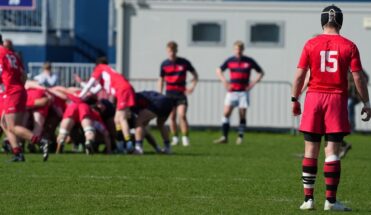
Review: U17 FOSROC Academy Festival

Super ‘sleuthing’ traces relatives of Scotland cap

Silver Saturday finalists confirmed – the countdown is on
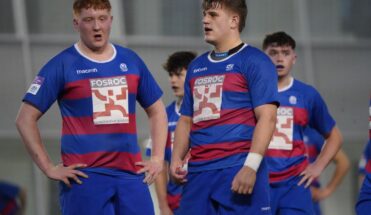
U17 FOSROC Festival sees regional academy sides joined by Newcastle Falcons
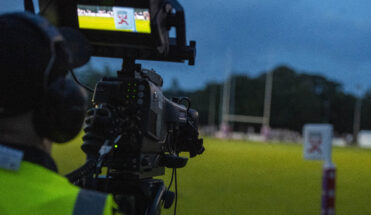
BBC ALBA to broadcast live FOSROC Super Series Sprint matches
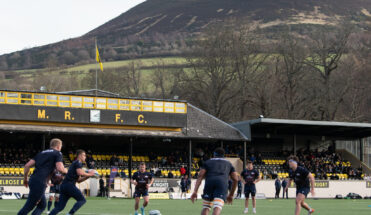
Teams to feature at Melrose Sevens in tribute to Eric Liddell
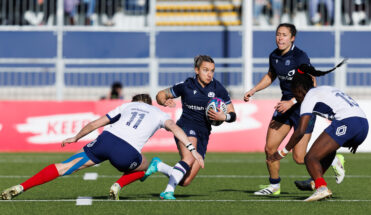
Rollie and Skeldon return to starting line-up to face Red Roses

Marr and Dalkeith to battle for Women’s National Bowl

Silver Saturday tickets, streaming details finalised





